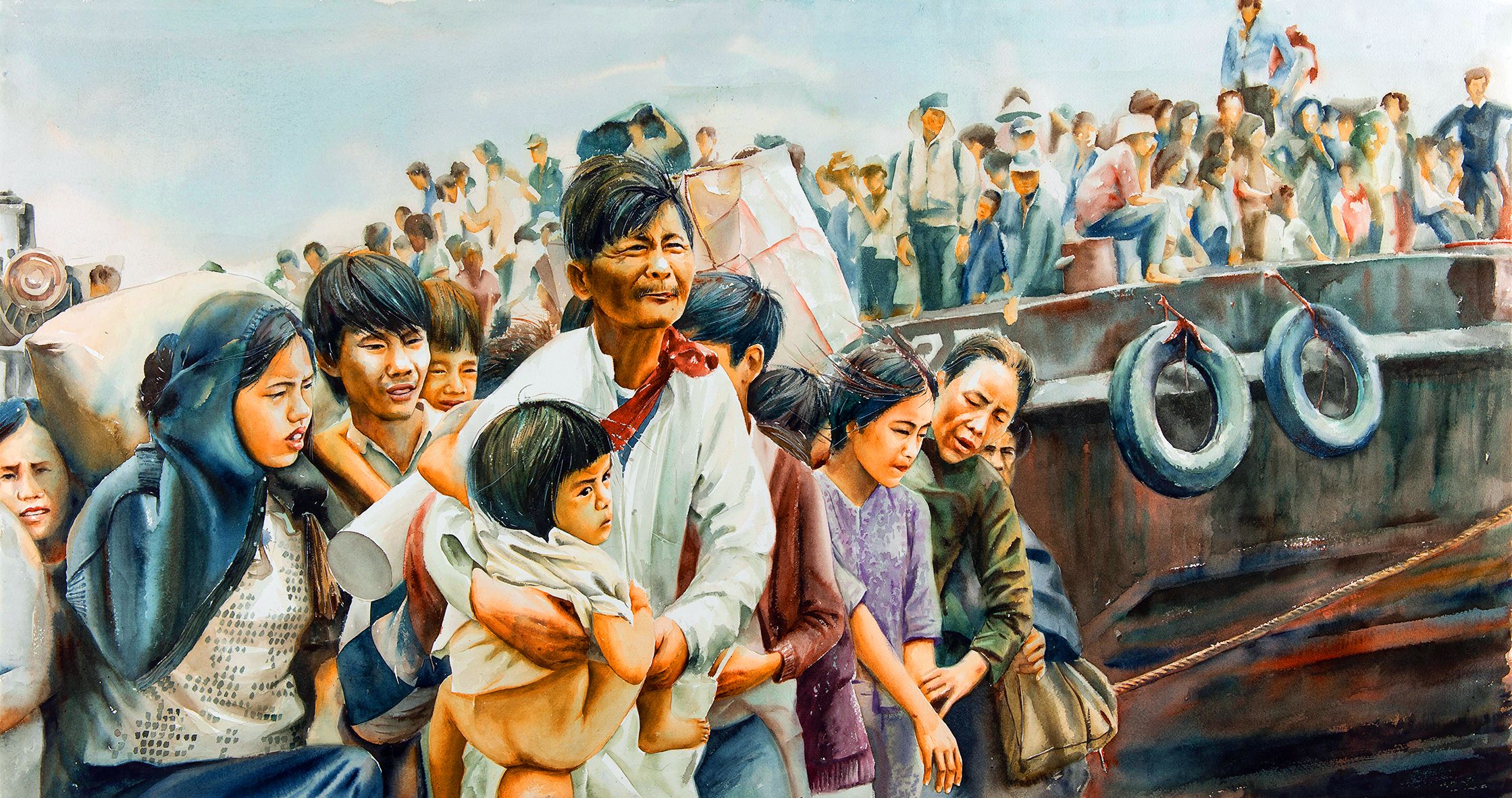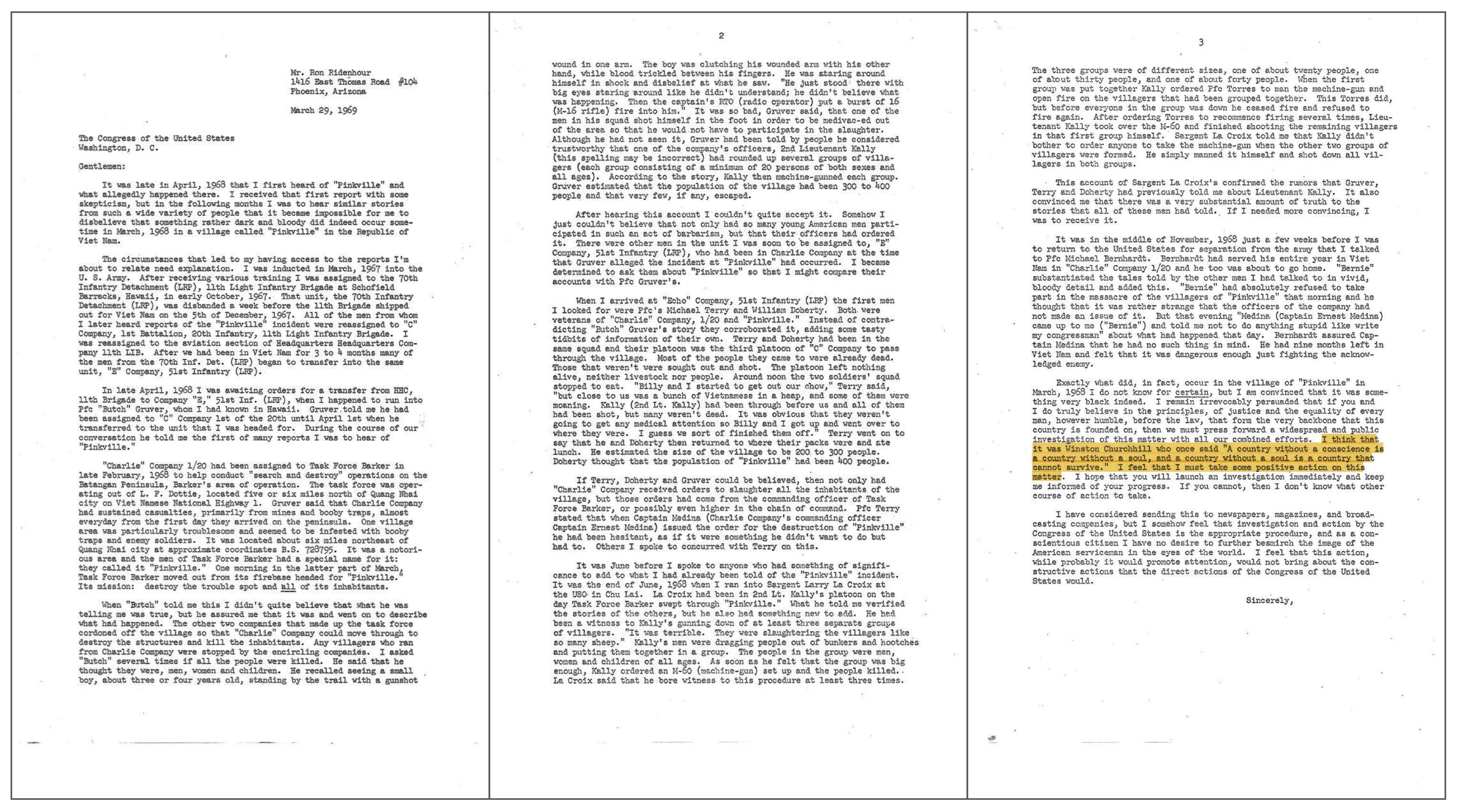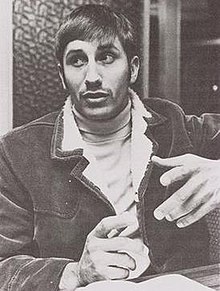My Lai: The Massacre That Changed the Course of the Vietnam War
Whistleblowing

South Vietnamese refugees evacuating.
Painting courtesy of Tiffany Chung
Word of the massacre did not reach the public's ears until a year and a half later. Americans might not have known about it at all if Ronald Ridenhour hadn’t pushed for the charges against the CC. Ridenhour followed many leads and eventually got down to the bare facts.
After learning what happened, Ridenhour wrote to Nixon, officers at the Pentagon, and several congressmen. Towards the end of his letter he wrote, “I think that it was Winston Churchill who once said ‘A country without a conscience is a country without a soul, and a country without a soul is a country that cannot survive.’ I feel that I must take some positive action on this matter.”
He received no response.

Image courtesy of Ronald Ridenhour

Image courtesy of Associated Press
However, action was occurring, even if not visible. His letter led to a quiet Army investigation. Six months after Ridenhour wrote his letter, Calley was charged with “six specifications of murder, including the deliberate shooting of 109 Vietnamese civilians." (Atrocity, Authenticity and American Exceptionalism)
Although minor details about Calley's charges were already published, it was on November 12, 1969 that an article "began to attract serious media and public attention." (Atrocity, Authenticity, and American Exceptionalism)